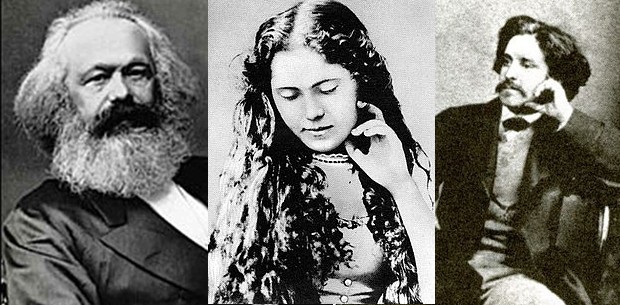Known as Marx's son-in-law; He committed suicide with his wife: Who is Paul Lafargue?
Although Paul Lafargue, born in Cuba, is mostly remembered today for being married to Marx's daughter and writing The Right to Lazy, he was known as an outspoken writer and economist during his lifetime.

The Right to Laze, written as a series of articles in 1880 by Lafargue, one of the founding figures of the French Workers' Party, has become the most translated text of left-wing literature into world languages after the Communist Manifesto.
He was born in Cuba in 1842. French-born Marxist, economist, journalist, and writer. He studied medicine in France.
At university, he participated in the youth revolution by opposing the royalist government system. He was suspended from the academy due to his political activities.
During the same period, he indulged in intense reading. He met Marx and Engels in London and joined the First International.
Paul Lafargue (15 January 1842 – 25 November 1911) was a Cuban-born French revolutionary Marxist socialist, political writer, economist, journalist, literary critic, and activist; he was Karl Marx's son-in-law, having married his second daughter, Laura. His best known work is The Right to Be Lazy. Born in Cuba to French and Saint Dominican Creole parents, Lafargue spent most of his life in France, with periods in England and Spain. At the age of 69, he and 66-year-old Laura died together by a suicide pact.
He married Karl Marx's daughter Laura in 1868. He was among the founders of the French Socialist Party and contributed to the organization of workers with his writings. Lafargue, who was remembered by Lenin as one of the most talented ideologues of Marxism, committed suicide together with his wife in 1911 in order not to endure the destruction that old age would cause on the mind and body.
Details from his life story
Lafargue, who was introduced to republican and socialist ideas during his education in Paris, was influenced by the Proudhonian anarchist movement, which was very influential in France, among the anti-Bonapartist opposition circles of the Second Empire, which covered his youth. has taken place.
After being expelled from the French academy due to his political activities, he went to London in 1865 to explain the situation of the socialist movement in France to the general council of the International, where he met Karl Marx and Friedrich Engels, and from this period onwards, he came to the line of "scientific socialism".
Marx's relationship with his daughter Laura also began during this period, and the couple married in 1868. While he was in Paris when the Commune was declared in 1871, he moved to Madrid when the revolution was suppressed. Here he founded the Marxist section of the International and started discussions on anarchist theses.
During his exile, he met Jules Guesde and together they formed the Marxist group within the French Federation of Socialist Workers. Later, this formation would evolve into the French Workers' Party, the first independent organization with a Marxist line in France, in 1882, and Lafargue would become the most important theorist of the organization. His studies cover a wide range of areas, from political economy to family and women's issues, from the rejection of work to the nature of religion under capitalism. In 1891, he served as a Lille deputy in the French parliament, again on the FIP side. He devoted most of his political life to the construction of a Marxist organization in France, independent of Proudhonian, Blanquian, and Bakuninian socialisms, and Broussian and Jaurèsian reformisms. In 1911, at the age of 69, he committed suicide with his wife and passed away.
